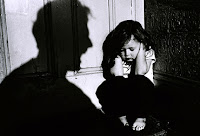
Childhood was a fun time for many of us. We rode our bikes up steep hills and rode them back down at dizzying speeds. We enjoyed sweets and hated school. Childhood was underlined by a sense of innocence and naivety that allowed us to view the world in a fairly optimistic light.
Unfortunately, sexual abuse is all too real, damaging that innocence and turning it against children. While sexual abuse attorneys are well-known and have been utilized throughout history, child abuse lawyers have become all too necessary.
Types of Sexual Abuse
There are actually numerous types of sexual abuse, including:
- Unwanted touching
- Exposing a child to pornography
- Non-consensual, forced physical sexual behavior (rape and sexual assault)
- Saying sexually suggestive statements towards a child
- Incest
One of the most common forms of sexual abuse involves using a position of trust to compel unwanted sexual activity without physical force, though this can lead to attempted rape or sexual assault. This has become a growing issue recently in the Catholic Church and other religious denominations, making priest abuse lawyers very common.
Recovering from Sexual Abuse
Recovery tends to be a long process. Those who have experienced sexual abuse are considered “survivors” instead of “victims.” Sexual abuse is both physically and emotionally damaging. Even years after the experience, there’s no guarantee that a survivor will ever feel the same. Many survivors experience feelings of guilt, depression, confusion, and shame.
The first step to recovery is acceptance. Survivors often find it difficult to admit what they have been through. A survivor has to admit to others and, most importantly, to himself or herself. The revelation and disclosure of sexual abuse can take whole years. Remember that the human mind is a very powerful thing. In times of intense emotional strain or trauma, the mind will often suppress the memory as a certain preservation mechanism. Repression can be one of the biggest obstacles.
Recovery should also be accompanied by some form of personal counsel. This gives the survivor an opportunity to speak openly about everything that happened. This will help the healing process, especially if the survivor is a child. While a survivor may turn to a trusted friend or family member, a professional therapist or counselor is recommended.
When talking to a survivor of sexual abuse, it’s important to:
- Relieve and reassure, never blame. The survivor will probably feel some amount of shame. There’s no need to add to that.
-Listen to what the survivor has to say.
















1 comments:
This is a very well written post about sexual assault. I try to be very open to my kids about sexual assault because I want them to be educated so they can better protect themselves. Thank you for sharing this.
Post a Comment